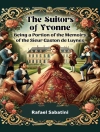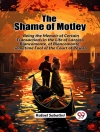In the Year of Jubilee, George Gissing crafts a compelling narrative set against the backdrop of late Victorian England, where socioeconomic tensions brew beneath the veneer of prosperity. Through the experiences of its protagonist, a temporarily disillusioned citizen during the year of the Jubilee celebrations, Gissing employs a naturalistic style that vividly captures the struggles of the working class amidst societal change. The novel intricately weaves themes of identity, morality, and the quest for personal fulfillment, resonating deeply with the period’s anxieties about modernity and class mobility. George Gissing, an influential figure in late 19th-century literature, drew upon his own experiences of poverty and disillusionment to inform his writing. Having struggled with personal hardships, including financial instability and failed romantic relationships, Gissing was compelled to examine the human condition in a rapidly changing world. His keen observations of English society imbue his work with a realism that challenges conventional affluence and illustrates the stark realities of life for the lower and middle classes. In the Year of Jubilee is a poignant exploration of societal expectations and individual desires, making it essential reading for anyone interested in understanding the complexities of Victorian life. Gissing’s masterful storytelling and insightful character development offer a compelling lens through which to view the human struggle, making this novel a noteworthy addition to the canon of English literature.
关于作者
George Robert Gissing (1857–1903) was an English novelist who published 23 novels between 1880 and 1903. Among his most noted works is ‘In the Year of Jubilee’ (1894), which vividly portrays middle-class life in the late Victorian era. Gissing’s fiction is celebrated for its realism, narrative technique, and psychological depth (Collins, 2005). His plots often revolve around the personal struggles and moral growth of the protagonists, as seen in ‘New Grub Street’ (1891), which explores the gritty world of struggling London writers. Gissing’s works frequently discuss the challenges of intellectual life amidst the corrosive values of a materialistic society. Although not commercially successful during his lifetime, modern critics have acknowledged Gissing’s keen social criticism and mastery of literary realism (Coustillas, 1977). After overcoming his troubled marriage and financial difficulties, Gissing’s later works, such as ‘The Private Papers of Henry Ryecroft’ (1903), suggest a more reflective and serene approach to life’s vicissitudes. His novels remain insightful social documents that offer a window into the late 19th-century England, and his contribution to the naturalism movement marks him as an influential figure in Victorian literature (Halperin, 2003).












